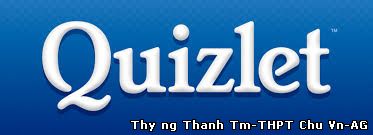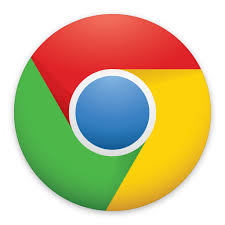| ÔN THI TN THPT 2017 |
|
|
| TRANG WEB LIÊN KẾT |
|
|
| ÔN TẬP HỌC KỲ 1 |
|
|
| ĐĂNG NHẬP |
|
|
| RÈN LUYỆN KỸ NĂNG |
| MỖI NGÀY NÊN HỌC |
| WEBSITE NỔI BẬT |
| CẢNH ĐẸP VIỆT NAM |
|
|
| THỐNG KÊ TRUY CẬP |
|
Thành viên |
| Main » CÁC HẠbook |  |
|
0
HOI: I have been searching around but still can't firgure it out:
1.I had no choice but to accept the challenge. 2.What can we do but sit and wait? 3.i desire nothing but to go home. 4.there is nothing to do but sit down. why in 1,3 but to v in 2, 4 but + bare inf Answer: The difference lies in your question is that in 1 and 3, the infinitive is used nominally (i.e. as a noun). For example, in #1, you are saying that your choice is "to accept the challenge." In #3, the thing you desire is "to go home." But in #2 and #4, "sit and wait" and "sit down" are replacing verbs, "to do" in both situations (note that in #2, "do" is actually "to do", we just don't say "can to do" but "can do.")
I hope that all made sense but all-in-all what's going on is when the infinitive is used as a noun, it takes "to + verb." More examples: - The Taliban have no other option but to negotiate with Afghanistan's government - I have no other choice but to trust You That's all I can do - Does Obama Have No Other Choice but To Threaten Iran? - I have no other choice but to close the ask box for now. - I have no (other) choice but to leave.(en.wiktionary.org/wiki/but ) - The first problem for all of us, men and women, is not to learn, but to unlearn. - The most important thing in the Olympic Games is not to win but to take part http://forum.wordreference.com/showthread.php?t=2150117 http://www.usingenglish.com/forum....ter-BUT |
|
0
a)" Much too ...."
It is an extra emphasis. It implies that the holiday is not only precious, but very precious indeed. "Really too ..." again, 'really' is used here as an emphasis. So you could use either. "Too" is an adverb of degree; these are used to describe the intensity or degree of an action, an adjective or another adverb. In "much too," the 'much' is acting as an intensifier to the adverb 'too.' An 'intensifier ' is a word - particularly an adverb or adjective - which is used to emphasise another adjective, verb or adverb. "I'm too tired" - 'I'm feeling pretty tired' "I'm much too tired" I'm completely exhausted, and I want you to understand that I am very very tired indeed. "That coat is too big for her" - She could really have a size smaller. "That coat is much too big for her" - The coat is so big it's hanging off her and she looks ridiculous! Just to make things a little more complicate for you, we also say "much too much" - meaning a far larger amount than is needed or wanted. "I've had much too much to eat" I have eaten such an amount that I really might burst! http://www.englishforums.com/English/TooMuchVsMuchToo/bbbzj/post.htm |
|
0
I knew the forms: a) VERY precious, b) TOO precious, c) Hoi: I love you TOO MUCH.
But recently I read this sentence: "Our holidays are MUCH TOO precious to spend them apart". I'd say, on the contrary: "Our holidays are REALLY TOO precious..." Why MUCH TOO, seeing that also TOO MUCH would be wrong here, in my opinion?  Answer: You need an adjective after "much too"
It's much too expensive! This is much too heavy for you. "too much" is an adverb It's raining too much to go for a walk I've been working too much |
|
0
EVERYDAY CONVERSATION
LESSON 2: CONVERSATION WITH " A" 1.Grudge : ác cảm -I have a grudge against him.( Tôi có ác cảm với anh ta) 2.Nightmare :ác mộng -I had a nightmare last night.( Tối qua tôi gặp ác mộng) 3.At a standstill : ách lại -My business is at a standstill.( Công việc của tôi bị ách lại)    |
|
0
HỌC TIẾNG ANH NÀO CÁC MEM ƠI
[Mỗi người SHARE là một lần nhớ] Enjoy your meal !--->Ăn ngon miệng nha! Nothing particular! ---->Không có gì đặc biệt cả After you ---->Bạn trước đi Have I got your word on that? ---->Tôi có nên tin vào lời hứa của anh không? The same as usual! ---->Giống như mọi khi Almost! ---->Gần xong rồi You 'll have to step on it ---->Bạn phải đi ngay I'm in a hurry ----> Tôi đang bận What the hell is going on?----> Chuyện quái quỷ gì đang diễn ra vậy? Sorry for bothering! ---->Xin lỗi vì đã làm phiền Give me a certain time! ---->Cho mình thêm thời gian Provincial! ---->Sến Decourages me much! ---->Làm nản lòng It's a kind of once-in-life! ---->Cơ hội ngàn năm có một Out of sight out of might! ---->Xa mặt cách lòng The God knows!----> Chúa mới biết được Women love through ears, while men love through eyes! ---->Con gái yêu bằng tai, con trai yêu bằng mắt. Poor you/me/him/her...! ---->tội nghiệp mày/tao/thằng đó/ con Bottom up! ---->100% nào! (Khi…đối ẩm) Me? Not likely! ---->Tao hả? Không đời nào! Scratch one’s head: ---->Nghĩ muốn nát óc Take it or leave it! ---->Chịu thì lấy, không chịu thì thôi!  |














